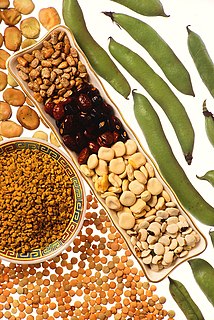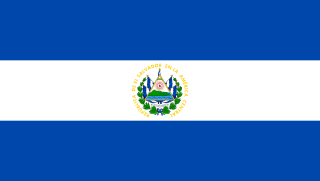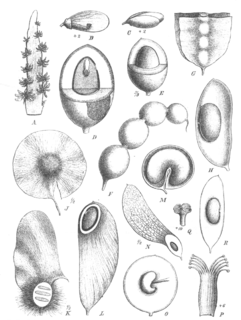| Lonchocarpus santarosanus | |
|---|---|
| Scientific classification | |
| Kingdom: | |
| (unranked): | |
| (unranked): | |
| (unranked): | |
| Order: | |
| Family: | |
| Genus: | |
| Species: | L. santarosanus |
| Binomial name | |
| Lonchocarpus santarosanus J.D. Smith | |
Lonchocarpus santarosanus, the Chapelno Blanco, is a species of legume in the family Fabaceae. It is found in El Salvador and Guatemala. It is threatened by habitat loss.

A legume is a plant in the family Fabaceae, or the fruit or seed of such a plant. Legumes are grown agriculturally, primarily for human consumption, for livestock forage and silage, and as soil-enhancing green manure. Well-known legumes include alfalfa, clover, beans, peas, chickpeas, lentils, lupins, mesquite, carob, soybeans, peanuts, and tamarind. Legumes produce a botanically unique type of fruit – a simple dry fruit that develops from a simple carpel and usually dehisces on two sides. A common name for this type of fruit is a pod, although the term "pod" is also applied to a number of other fruit types, such as that of vanilla and of the radish.

The Fabaceae or Leguminosae, commonly known as the legume, pea, or bean family, are a large and economically important family of flowering plants. It includes trees, shrubs, and perennial or annual herbaceous plants, which are easily recognized by their fruit (legume) and their compound, stipulate leaves. Many legumes have characteristic flowers and fruits. The family is widely distributed, and is the third-largest land plant family in number of species, behind only the Orchidaceae and Asteraceae, with about 751 genera and about 19,000 known species. The five largest of the genera are Astragalus, Acacia, Indigofera, Crotalaria, and Mimosa, which constitute about a quarter of all legume species. The ca. 19,000 known legume species amount to about 7% of flowering plant species. Fabaceae is the most common family found in tropical rainforests and in dry forests in the Americas and Africa.

El Salvador, officially the Republic of El Salvador, is the smallest and the most densely populated country in Central America. It is bordered on the northeast by Honduras, on the northwest by Guatemala, and on the south by the Pacific Ocean. El Salvador's capital and largest city is San Salvador. As of 2016, the country had a population of approximately 6.34 million.







